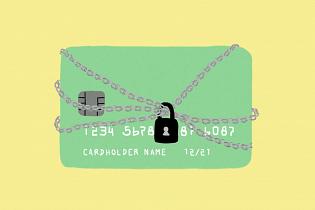How to Train Your Brain to Stop Making Impulse Purchases, According to a Financial Psychologist
Combine a pandemic that’s kept us cooped up indoors with an unusually cold winter and what do you get? A perfect recipe for some highly questionable online impulse purchases.
Maybe you can’t stop hunting for a cocktail dress to wear at those summer weddings you may-or-may-not attend. Or maybe you suddenly find your AmazonBasics kitchenware lacking in comparison to the celebrity chefs you’ve taken recipe inspiration from. Either way, if you feel like your online shopping has been more out of control than usual, you’re not alone: Consumer spending on e-commerce platforms shot up 44% over the past year, according to information from the U.S. Commerce Department.
Financial experts will tell you that if you want to curb unnecessary spending, you need to unsubscribe from marketing emails, block websites, and delete your credit card information from your browser. It’s sound advice that does the trick for many — but sometimes these tips can backfire or simply not go far enough. (Not to point any fingers, but this author may or may not have accidentally memorized her own credit card number from manually typing it in too many times.)
So if you’re a fellow member of the credit card memorization club who’s still spending more online than you’d like to, then you may need to replace easy hacks with more long-lasting habits rooted in behavioral psychology.
“I don’t think [easy hacks] are nearly as helpful as understanding why you’re doing it in the first place,” says Brad Klontz, a financial psychologist and certified financial planner.
Here’s what to know about the psychology behind impulsive shopping and how to use that knowledge to create better habits.
Be conscious of your decision-making process
Most people would like to consider themselves rational beings, making decisions without letting their emotions get in the way. But behavioral economists have some harsh truth: that simply isn’t true. And when it comes to shopping, external players are actually encouraging you to act irrationally.
“Marketers are experts at triggering you emotionally to get you to spend your money,” Klontz says.
In the digital age, where everywhere you click is seemingly a never-ending maze of email alerts and carousel ads, it can be downright impossible to avoid getting wound up, worrying you might miss out on a great deal.
“When we become emotionally charged, we become rationally challenged,” Klontz says. “Our prefrontal cortex becomes impaired.”
The prefrontal cortex is the area of your brain responsible for decision-making, and engaging it to get ahead of what triggers you to spend requires vigilance. Luckily, while the prevalence of online shopping can hinder peoples’ ability to think rationally, it also offers benefits that you can’t take advantage of in-store. Tricks like letting your cart sit for 24 hours or disabling alerts from stores can force us to reflect on whether or not it’s a good spending decision.
But managing your decision-making works best when you can individualize the experience. One way to do this is to take stock of what tends to be your go-to categories for impulsive spending and create specific parameters for what makes a purchase justifiable. For example, if shoes are your vice you might ask yourself: Can I wear them with X amount of outfits? Do I already have a similar pair that serve a similar function? Will they last for more than one season? And so on.
If you can honestly answer whatever questions you decide are important with qualifications that make spending the money worthwhile, then you’ll be less likely to cave when presented with the opportunity to make an impulsive purchase.



